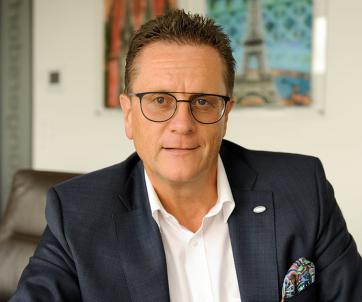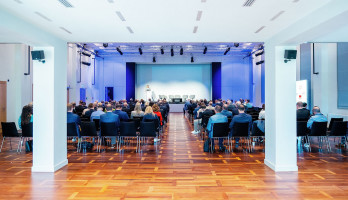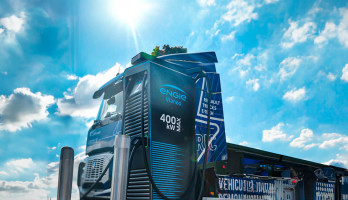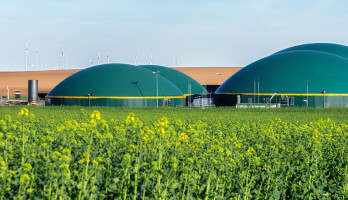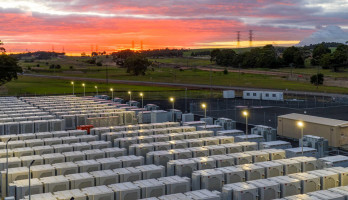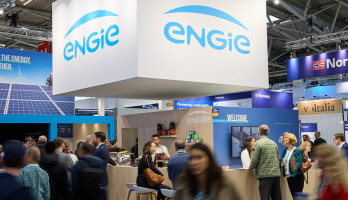
Impulse #19: Climate knows no borders
Reaching climate neutrality is only possible together – politics, business and society firmly united. To what extent does the Heating Act support us on this path? Or do we need alternative approaches to actively drive decarbonization forward? In the new "Impulse," Manfred Schmitz, CEO of ENGIE Deutschland, outlines the importance of proportionality and strong international traction.
After this summer of extreme weather events, are you also looking forward to calm autumn days? The EU Climate Service recently determined that the past three months of June, July and August were "by far" the hottest in the world for around 120,000 years, i.e. since the beginning of human history. For 2023 as a whole, the scientists of the European Earth observation program Copernicus are even forecasting a new heat record year. Severe heat waves, massive droughts, blazing forest fires and dramatic floods due to the high temperatures on all continents give us an idea of where this forecast comes from. And that it will most likely be confirmed. Because the consequences of climate change are being felt all over the world – and have long since arrived here in Germany, too.
„Political decisions, entrepreneurial opportunities and social acceptance must be in harmony. Because we can only master the challenge of climate neutrality together."
What the Heating Act Does
Curbing climate change is an enormous task. Without a doubt, politics, business and society can only tackle it together. Politicians in particular are called upon to set the appropriate framework conditions - and in my opinion have already taken steps in the right direction. However, there are also questionable undertakings. Everyone is currently talking about the GEG amendment (Building Energy Act) recently passed by the Bundestag, better known as the Heating Act. You can’t call this acceptance!
The Principle of Proportionality
Please don't misunderstand me: In principle, I am open to all ideas and measures that move us forward on the path to climate neutrality. In no way do I want to question the political decisions of the German government in general. Without a doubt, on both a small and a large scale, consumption must be reduced, plants and buildings must be set up in an energy-efficient manner, and fossil fuels must be converted to renewable energies. In order to create the necessary framework conditions, politicians have a major task and an enormous responsibility. Pure actionism must not be the solution. At the same time, the Wärmeplanungsgesetz (Heat Planning Act) was passed in the Bundestag. All of the approximately 11,000 cities and municipalities will be required to draw up a municipal heating plan by mid-2028 at the latest. From my perspective, this is the right first step. Where local and district heating systems exist, they should be expanded – this is the first focus of this legislation – because it is much easier to make such a system climate-neutral than many individual plants. Incidentally, we are currently working on corresponding concepts in Gera, Saarbrücken and Berlin to make the heat supply in these cities sustainable by 2040. The second focus of heat supply is on heat pumps. Instead of burning fossil natural gas, this technology uses green electricity as the main energy source. It will be an exciting task for all municipalities to decide whether and to what extent they will rely on district heating, heat pumps or other energy sources in the future. Incidentally, the ENGIE Deutschland team is already developing and implementing many projects for municipal utilities and communities throughout Germany that will secure their future viability and make sense in both ecological and economic terms.
Climate neutrality as a global task
In summary: Political decisions, entrepreneurial and municipal opportunities and social acceptance should - no, must! - be in harmony. This balance is essential if we are to work together to reduce greenhouse gases and advance the goal of climate neutrality. Climate neutrality is our single biggest issue for the future. International bodies and events – such as the global climate conference COP28 in Dubai in November, at which ENGIE will also be represented – are just as important for solidarity-based solidarity as the many small local measures that we know from our daily project business. Ultimately, I am convinced that humanity, with its infinite creativity, will be able to master the challenge of climate neutrality – for a future fit for grandchildren, for all people worldwide on our livable planet Earth.
Dear readers, with this "Impulse" I bid you farewell as head of ENGIE Deutschland, as I am leaving the company at the end of the year at my own request. I would like to sincerely thank you for your trust, your messages and the pleasant cooperation over the past more than twenty years. It would be all the nicer if you would share your thoughts on this subject with me again. And perhaps we will meet next week at the EXPO REAL in Munich? Please feel free to drop by our booth 440 in hall B2. I look forward to a constructive dialog with you!
Your Manfred Schmitz
CEO ENGIE Deutschland
Our Expert
